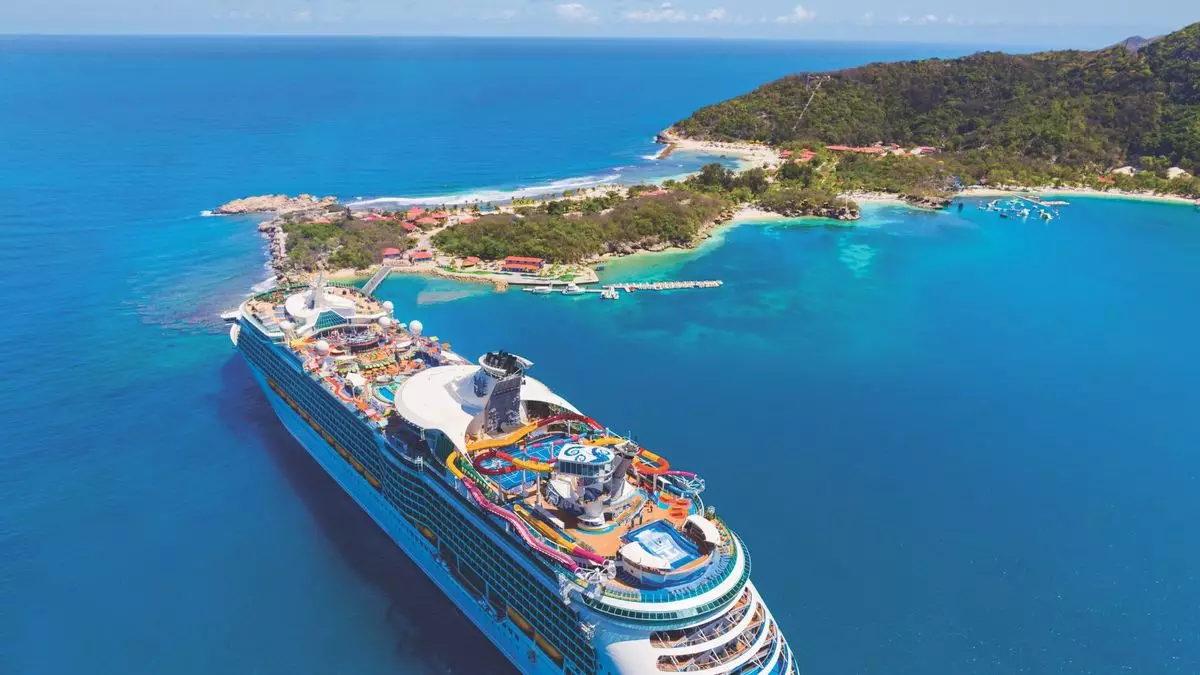After a protracted absence due to escalating political turmoil in Haiti, Royal Caribbean International is on the cusp of reinstating its services to Labadee, its exclusive port of call. The Adventure of the Seas is set to be the inaugural ship back, with the Symphony of the Seas following shortly after, prompted by modifications to the hurricane-affected itinerary. However, this return raises questions about the safety and ethics of tourism in conflict-affected regions.
Royal Caribbean halted its operations at Labadee in March, a decision that arose in response to alarming incidents of violence, including violent gang activities and prison escapes. The situation forced both the U.S. government and the United Nations to scale back their presence in Haiti, reflecting the severity of the chaos gripping the nation. Initially, the cruise line suspended its calls for brief periods, ultimately committing to an extended hiatus as the turmoil deepened.
News of the return to Labadee surfaced not through corporate channels, but via a social media post from a guest who surprisingly noted the destination on their itinerary. This unexpected twist highlights a significant challenge in the cruise industry: the reactive nature of corporate communication during crises. Royal Caribbean has yet to publicly clarify the factors leading to this decision, though sources suggest that operational norms have somewhat stabilized, with certain airlines resuming flights in and out of Haiti.
While Labadee boasts a private enclave fenced off from the broader chaos in Haiti, recent reports confirm a resurgence of violence, most alarmingly the assassination of over 70 individuals in the nearby Pont-Sonde region. Such incidents underscore the unpredictability of the situation, presenting a formidable barrier to the perception of safety among potential travelers. Royal Caribbean’s Global Security and Intelligence Team claims to be actively monitoring the situation; however, is it enough to mitigate the inherent risks faced by guests and crew members?
The U.S. State Department’s travel advisory—warning against all travel to Haiti—paints a grim picture that contradicts Royal Caribbean’s optimistic outlook. The juxtaposition of cruise operations against the backdrop of national instability compels a critical analysis of the ethical implications and responsibilities that accompany leisure travel to crisis-affected areas.
As Royal Caribbean plans for a slate of additional ships to return to Labadee by the end of the year—including the Explorer, Freedom, and Independence of the Seas—the potential fallout becomes evident. The overarching question remains: Should tourism operate as usual in areas grappling with such turmoil? The answer could redefine the cruise industry’s approach toward destinations at risk and highlight an urgent need for travel operators to prioritize ethical considerations alongside economic incentives.
Royal Caribbean’s return to Labadee marks a complex intersection of commerce and conscience at a fraught time for Haiti. While the cruise line is eager to re-engage with a beloved destination, the social and moral implications surrounding its return cannot be overlooked. Ultimately, the decision to travel to crisis-affected regions should be informed not only by personal desires but also by the broader context of safety, stability, and ethical tourism practices.


Leave a Reply